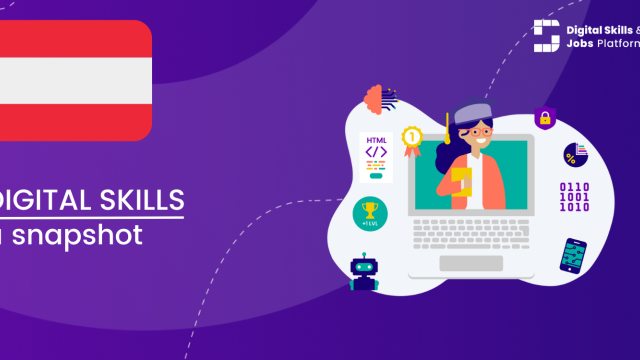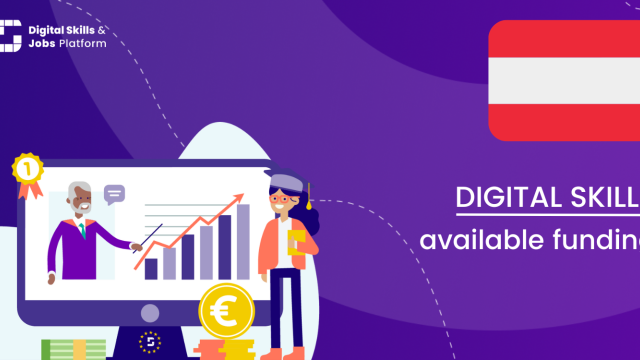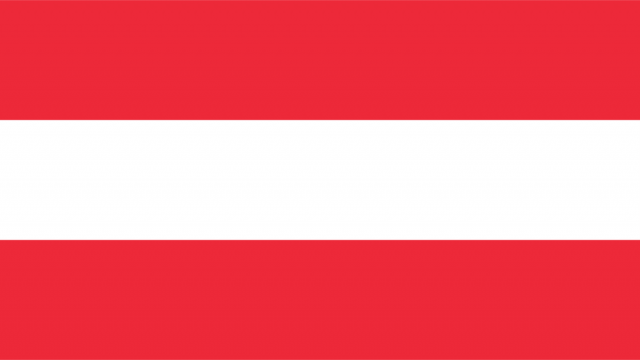Austria
Austria maintains a strong position in digital skills, with 64.68% of its population possessing at least basic digital skills in 2023, well above the EU average of 55.56%. According to the Digital Decade report 2025, Austria’s share of ICT specialists in the labour force 5.3% exceeds the EU average (5.0%). The share of female ICT specialists, at 21.1%, is also slightly higher than the EU average of 19.5%. This puts Austria at 80% of the overall target for the EU 2030 goal, which aims to have 80% of the EU population possessing at least basic digital skills.
Austria continues to demonstrate strong momentum in AI adoption and made progress on connectivity deployment, although the country still lags in the roll-out of Very High-Capacity Networks (VHCN) and Fibre to the Premises (FTTP), while the start-up ecosystem remains constrained by declining venture capital and limited unicorn growth.
Austria has a National coalition for digital skills and jobs. The initiative consists of a collaborative effort led by the Austrian Federal Chancellery and four federal ministries, the Ministries of Labour, Social Affairs, Health, Care and Consumer Protection, Education, Women, Science and Research, and Economic Affairs, Energy and Tourism, and represents an innovative approach to cross-governmental cooperation that ensures a unified and effective strategy. The effort is national as well, with all federal states signing the Digital Austria Pact, demonstrating a collective commitment to enhancing digital skills and literacy.
The Austrian National strategic roadmap for the Digital Decade developed by the Federal Ministry of Finance sets out the strategic goals to be achieved by 2030, monitoring their achievement, and the target paths and key measures have been developed.
The Austrian National Coalition, led by the Digital Skills Office at OeAD - Austria’s Agency for Education and Internationalisation (as the implementation partner of the Digital Skills Initiative, is actively involved in digital re- and upskilling.
Austria's other initiatives include investing in digital education, expanding broadband coverage, promoting Quantum Computing research, and implementing reforms for basic digital competence in schools. Digital basic education is now compulsory for students in 5th to 8th grade. Furthermore, the Digital Skills Initiative aims to enhance digital skills across different domains by 2030 based on the National Framework of Reference for Digital Competence.
Austria ranks 8th out of the 27 EU Member States in the DESI dashboard for the Digital Decade for the 'At least basic digital skills' indicator, with 64.7% of its population possessing at least basic digital skills.







